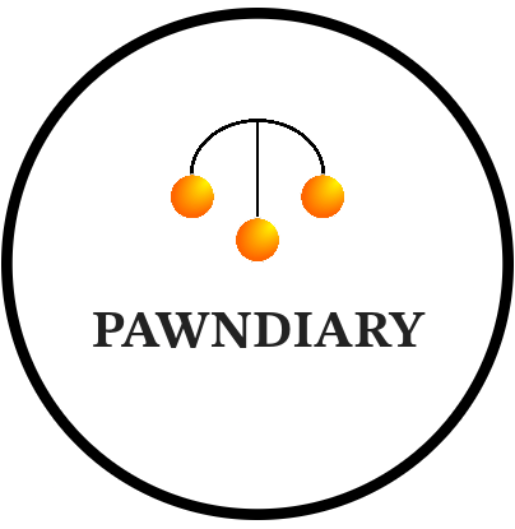
In this article, we will explore the intriguing history of pawn shops in America, tracing their origins back to ancient times and how they have evolved to become an essential part of the financial landscape today. Pawn shops have played a vital role in providing financial assistance to individuals and communities, and we’ll delve into the significant events that have shaped their development over the centuries. From ancient China to modern America, pawn shops have left an indelible mark on society.
Table of Contents
Pawnbroking, the practice of lending money on portable security, dates back thousands of years, making it one of the oldest financial institutions in human history. Pawn shops have served as primary lenders to their communities and have played pivotal roles in funding important historical events. One such instance is when Queen Isabella of Spain pawned her royal jewels to finance Christopher Columbus’ expedition to the New World, marking the significance of pawnbrokers even in royalty’s financial matters.
The Ancient Roots of Pawnbroking
China: The Oldest Financial Institution

Pawnbroking can be traced back at least 3,000 years to ancient China, where it served as a primary method of lending money. Established and operated by Buddhist monasteries, these early pawnshops later became more widely seen in various parts of China. Over the years, Chinese pawnbrokers employed flexible strategies to extend their services to a wide range of social members, showcasing the industry’s adaptability and social value advancement .
Ancient Rome and Greece: Pawnbroking for the Working Class

In ancient Greece and Rome, pawnbroking thrived, providing merchants with a way to fund their small shops or finance trade ventures. For the working class, clothes were often the most valuable possessions, and they could be pawned to meet everyday needs. Roman law laid out guidelines for pawnbroking, and certain items were not allowed to be pledged.
Pawnbroking in the Middle Ages

Prominent Families as Money-Lenders
During the Middle Ages, prominent families like the Lombards of England and the Medicis of Italy became known as money-lending families. King Edward III of England famously pawned his jewels to the Lombards to help finance a war against France. Pawnbroking spread to England with the Norman conquest, and it became an essential way of financing business endeavors and granting temporary aid to the poor.
Pawnbroking’s Role in Financing World Events
Pawnbroking played a significant role in financing world events. Notably, Queen Isabella of Spain pawned her royal jewels to fund Christopher Columbus’ voyage to the New World, a pivotal event in history.
17th & 18th Centuries: The Emergence of Pawn Regulations

In the 18th century, public pawnshops in England started offering low-interest loans to the poor to curb debt. The 19th century saw the common practice of pawning clothes on Monday and retrieving them on Friday, a way for poor people to make it through the week. To prevent the pawning of stolen items, regulations were put in place, and the Pawnbrokers Act of 1872 in England established guidelines for the industry that continue to shape it today.
Pawn Shops in America: A Historical Journey

Pawnbroking came to America with the first settlers in the 18th century. Initially regarded as the main source of consumer credit, pawn shops faced competition from larger consumer credit institutions as the financial landscape evolved. However, pawn shops continue to play a vital role in offering short-term collateral loans ranging from small sums to thousands of dollars, addressing the financial needs of the general public.
America’s Super Pawn: An Innovative Pawn Store

America’s Super Pawn stands as a modern and innovative pawn store, offering a range of services that set it apart from traditional pawnbrokers. Alongside pawn loans, customers can purchase unneeded items and exchange goods through their recycling program. The store also embraces technology, using an Internet-based crime-fighting tool to share information on pawned or sold items with police departments nationwide, demonstrating a commitment to combatting stolen goods.
The Symbol of Pawnbroking: Three Gold Balls & the Santa Connection

The iconic symbol of pawnbroking is three gold spheres hanging from a bar. This symbol has its roots in St. Nicholas, known as Santa Claus, the patron saint of pawnbroking. St. Nicholas is said to have left three bags of gold for the daughters of a poor man, allowing them to afford their marriage. This tradition transformed into the three gold balls, becoming synonymous with pawnbrokers worldwide.
Conclusion
Pawn shops have a rich and fascinating history that spans thousands of years, from ancient China to modern-day America. They have served as primary lenders, financed world events, and adapted to meet the needs of changing societies. America’s Super Pawn exemplifies the innovation and services offered by modern pawn stores, showcasing their significance in contemporary times. The three gold balls, a symbol with roots in the generosity of St. Nicholas, continue to represent this age-old profession.
FAQs
- Are pawn shops still relevant today? Yes, pawn shops remain relevant today, offering short-term collateral loans and various services that other financial institutions may not provide. They play a crucial role in helping working families meet unexpected financial needs.
- Can I pawn valuable items other than jewelry? Yes, you can pawn a variety of valuable items, including electronics, tools, musical instruments, and more. Pawn shops accept a wide range of items as collateral.
- What happens if I cannot repay my pawn loan? If you cannot repay your pawn loan within the agreed-upon period, the pawn shop may keep the item you pawned and put it up for sale to recover the loan amount.
- Are pawn shops a safe place to sell my valuables? Yes, pawn shops are a safe place to sell your valuables, especially if you need quick cash. They are regulated and follow strict guidelines to prevent the acceptance of stolen items.
- Do pawn shops offer fair prices for items? Pawn shops offer prices based on the item’s value and condition, and they aim to provide fair deals. It’s essential to research the value of your item before pawning or selling it to get the best price.



